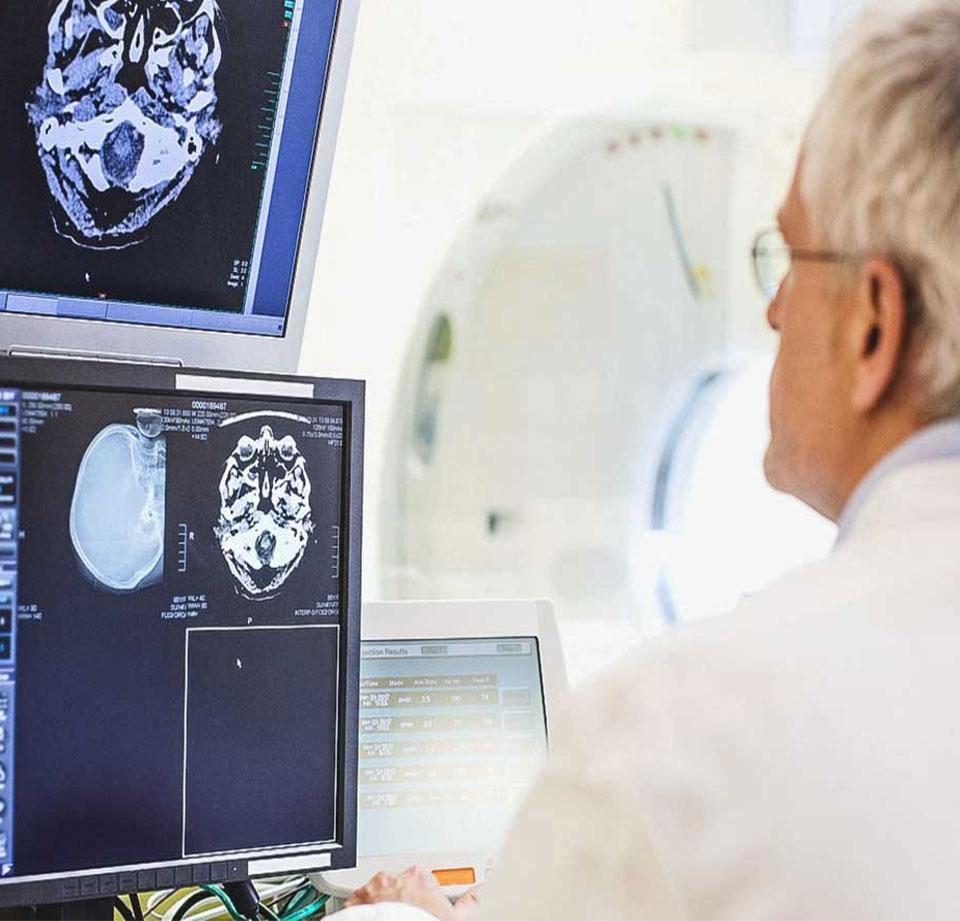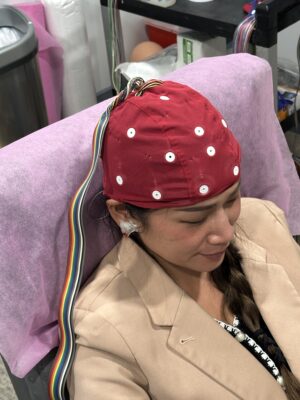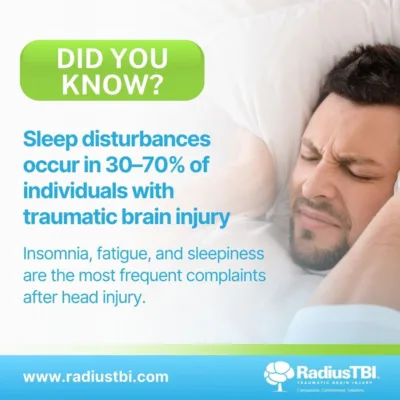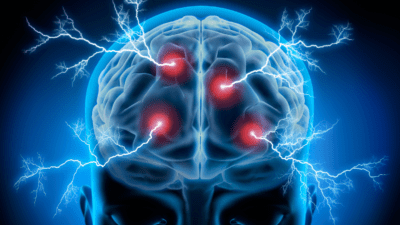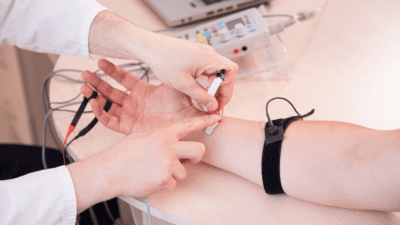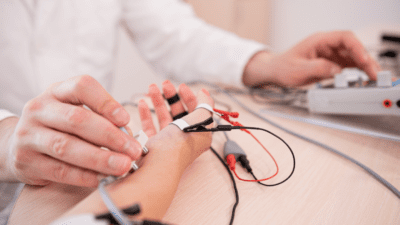Get TBI Checked With The Best TBI Expert Teams in Florida
Integrative Care for Concussion / Traumatic Brain Injury (TBI) Sufferers in Ft. Lauderdale, Tampa, and Orlando, Florida
Treatment Options for TBI
At Radius TBI, our medical team of neurologists, neuropsychologists, Neuro-ophthalmologist, psychologists, Audiologists, Neurofeedback Therapists and physical therapists offer options for treating TBI in the Ft. Lauderdale, Tampa and Orlando area. We aim to help heal the brain and manage emotional issues arising from TBI.
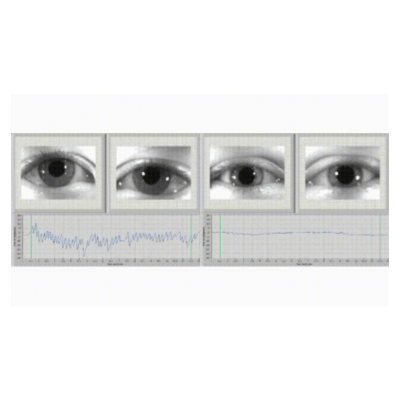
Vision Therapy
Don’t let vision problems affect your daily life. Our Neuro-Ophthalmology uses the highest level of care for your visual health and can diagnose and treat complex visual disorders related to the brain and nervous system, such as double vision, optic nerve disorders, and visual field defects.

Psychological Counseling
To manage stress disorders stemming from concussions, we provide psychological counseling, which helps patients overcome anxiety, irritability, and mood swings post-injury.
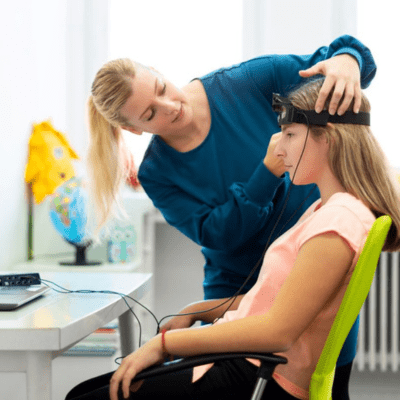
Neurofeedback
Neurotherapy, or neurofeedback, teaches patients how to self-regulate brain function. This cutting-edge biofeedback technique monitors heart rate, blood pressure, skin temperature, and brain waves. It then uses those to help you gain control over these processes through conditioning.

Psychological Counseling
To manage stress disorders stemming from concussions, we provide psychological counseling, which helps patients overcome anxiety, irritability, and mood swings post-injury.

Vision Therapy
Don’t let vision problems affect your daily life. Our Neuro-Ophthalmology uses the highest level of care for your visual health and can diagnose and treat complex visual disorders related to the brain and nervous system, such as double vision, optic nerve disorders, and visual field defects.

Neurofeedback
Neurotherapy, or neurofeedback, teaches patients how to self-regulate brain function. This cutting-edge biofeedback technique monitors heart rate, blood pressure, skin temperature, and brain waves. It then uses those to help you gain control over these processes through conditioning.
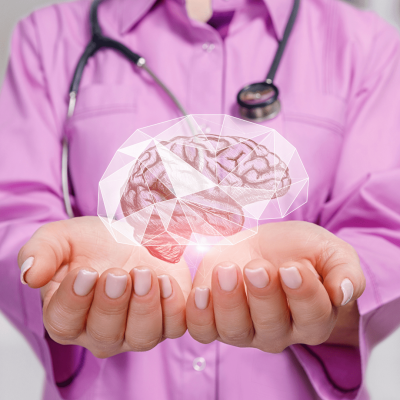
Neurocognitive Rehabilitation
Our state-of-the-art visual neuro-cognitive rehabilitation device assists in treating patients suffering from reduced motor skills, reaction time, cognitive function, and poor balance.
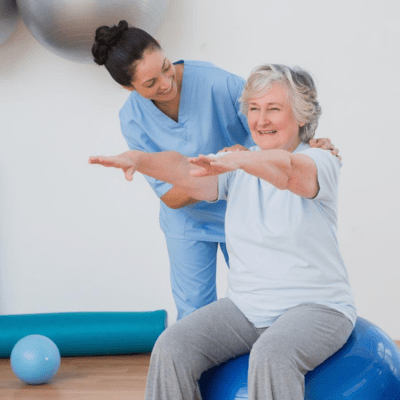
Physical Therapy
We provide physical and occupational therapy, including vestibular balance training to restore balance, eliminate dizziness, and improve endurance.

Nutrition Counseling
We may also add alternative treatments, including nutrition counseling and acupuncture, to improve patient outcomes.

Neurocognitive Rehabilitation
Our state-of-the-art visual neuro-cognitive rehabilitation device assists in treating patients suffering from reduced motor skills, reaction time, cognitive function, and poor balance.

Physical Therapy
We provide physical and occupational therapy, including vestibular balance training to restore balance, eliminate dizziness, and improve endurance.

Nutrition Counseling
We may also add alternative treatments, including nutrition counseling and acupuncture, to improve patient outcomes.
TBI is a major cause of death and disability
There were over 69,000 TBI-related deaths in the United States in 2021. That’s about 190 TBI-related deaths every day.
TBIs affect the lives of people of all ages. Anyone can experience a TBI, but data suggest that some groups are at greater risk of dying from a TBI or experiencing long-term health problems after the injury.
People most commonly get TBIs from a fall, firearm-related injury, motor vehicle crash, or an assault
Research shows that:
- Falls lead to nearly half of the TBI-related hospitalizations
- Firearm-related suicide is the most common cause of TBI-related deaths in the United States
- Motor vehicle crashes, and assaults are other common ways a person may get a TBI
For more detailed information on the leading ways, people get TBIs and the groups of people most likely to get a TBI, check out the CDC’s TBI data reports.
Source: www.cdc.gov
Radius TBI is Located in Ft. Lauderdale, Tampa and Orlando, Florida
Treating Traumatic Brain Injury (TBI)
Did you know that left untreated, concussions reduce your quality of living for the rest of your life? Mental illness and other conditions such as Alzheimer’s are now being linked to mild traumatic brain injuries (TBI) such as concussions.
Radius TBI is Located in Ft. Lauderdale, Tampa and Orlando, Florida
Concussion/ TBI Diagnosis
Since many concussion symptoms are undetectable with MRI or CT scans, Radius TBI offers a wide range of in-depth diagnostic tools for diagnosing mild TBI. Our Ft. Lauderdale neurologists begin with a comprehensive neurological exam. After reviewing your medical history, we will evaluate the severity of each symptom you have experienced. Symptoms can include mood changes or changes in social interactions.
Radius TBI is Located in Ft. Lauderdale, Tampa and Orlando, Florida
Signs & Symptoms of a Concussion/ TBI
Symptoms of a concussion/ TBI should never be ignored – even if you have just one sign on the list. No matter how mild your symptoms may seem, they can still put you at risk for long-term health issues, so you should consult a neurologist for a comprehensive neurological evaluation.
Comprehensive TBI medical team in-house.
Even after all symptoms of a concussion seem to be gone, injury to soft tissue, blood vessels, and nerves in the brain may cause long-term problems. This is why any noticeable concussion symptoms should be treated by knowledgeable neurology experts.
The length of your treatment time will depend on the severity of your injury, the symptoms you experience, and your progress while undergoing therapy. Contact our team today to schedule a consultation.
QEEG Brain Map Interpretation
In the world of neuroscience, one of the advanced tools used to understand brain function is the Quantitative Electroencephalogram (QEEG), often referred to as brain mapping. But who interprets these intricate brain maps, and why...
Read More>>Meet Our No.1 Best Neuropsychologist in Tampa, FL Location
At Radius TBI, we pride ourselves on providing exceptional care for individuals suffering from traumatic brain injuries (TBI) and concussions. Our integrated medical team in Tampa, FL, includes some of the most respected and experienced...
Read More>>Sleep Disturbance
Did you know? Dealing with a traumatic brain injury (TBI) often means navigating a range of complications, one of the most prevalent being sleep disturbances. Surprisingly, 30-70% of individuals with a TBI experience some form...
Read More>>Understanding Routine EEG, QEEG, and Ambulatory EEG Tests
EEG, QEEG, and Ambulatory EEG are distinct forms of electroencephalography, each serving unique purposes in the diagnosis and monitoring of neurological conditions.
Read More>>A Deep Dive into Electromyography (EMG Test): Decoding the Language of Muscles and Nerves
Electromyography (EMG) is a diagnostic procedure that plays a crucial role in unraveling the intricacies of the neuromuscular system. By measuring the electrical activity within muscles and the nerves controlling them, EMG provides valuable insights...
Read More>>Precise Diagnostics, Proactive Care: Nerve Conduction Velocity NCV Testing Solutions in Florida
The Nerve Conduction Velocity (NCV) test is a diagnostic procedure designed to assess the speed at which electrical impulses travel along nerves. This test is an integral component of neurophysiological studies, providing crucial insights into...
Read More>>



